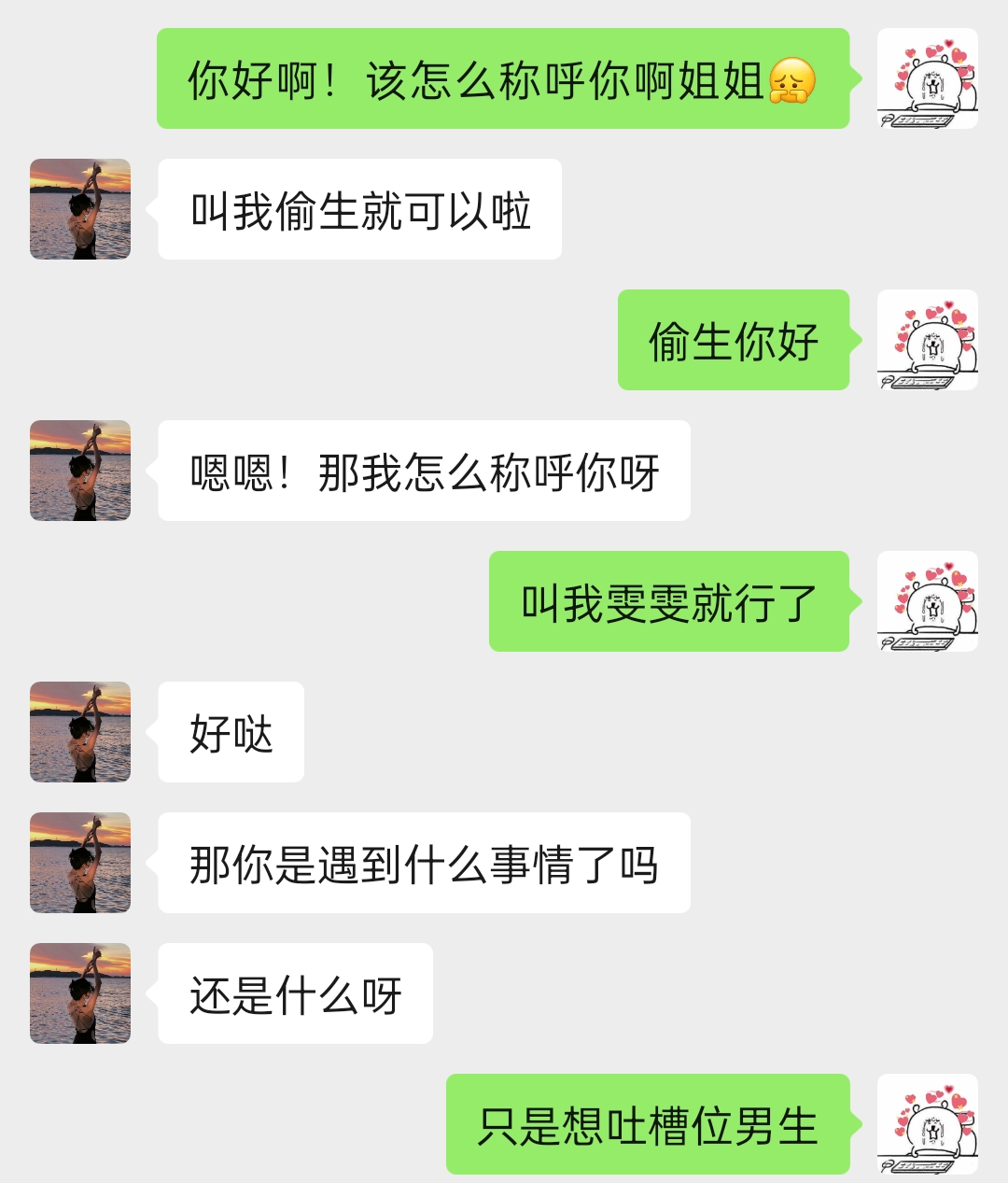Banking on company: China’s youth-driven ‘companionship economy’ gains steam, but risks also emerge

It was 3am on a Monday (don’t judge) when I sought out my first conversation companion – for work, of course, at the instruction of my editors to try it out.
Such services are widely available on Chinese social media and retail platforms like Xiaohongshu and Taobao.
“Here, you can find a voice and a face that you like, someone to play games and sing with, put you to sleep, wake you up, and even listen to your troubles,” one description read.
I settled on a store with an average 4.8-star rating out of five that boasted more than 80,000 orders.
The reviews were glowing, with many praising the “jiejie” or “gege” – big sister and big brother respectively in Mandarin – for listening to their troubles and conversation skills. Many also praised the partners for their “wonderful voices”.
I wasn’t sure if “pei liao” partners were available in the wee hours, so I asked: “Hello, it’s late but I was wondering if anyone is available to chat?”
A customer service officer replied within the minute. Introducing herself as Wan Wan, she asked: “Darling, would you like a jiejie or a gege?”
At the same time, she sent over a “price chart” – which was when I realised that the experience can be tailored to your preference.
I could choose from a text or voice note session, a voice call or even a video call.
The chart listed different tiers of conversation partners. They were ranked with quirky names, starting from the 2-star “blind box” to the top-ranked “koi”.
The rates started modestly but quickly went up. Taking the 2-star companion as an example, 10 yuan would secure you a 15-minute text session. For 180 yuan, you’d get a five-hour voice/video call session.
At the highest “koi” tier, a 15-minute text session costs 60 yuan and a five-hour voice/video call session goes for a cool 1,080 yuan.
I found that the conversation partners were typically depicted in anime-style stylised art, likely to safeguard their privacy.
I requested a 15-minute text session with a jiejie, opting for the second-highest “chairman” tier.
At this point, I was asked to pay up – 43.58 yuan in total, inclusive of goods and services tax (GST) as I purchased this in Singapore.
Once that was settled, Wan Wan asked how I would like to be contacted and if I wanted a cute jiejie or someone more mature in personality.
I went with the latter option. My paid partner – calling herself Tou Sheng – then added me on WeChat and the text session got underway.
I told Tou Sheng I wanted to vent my frustrations about an interview I conducted as part of work. She was patient and listened to how I did not feel respected during the interview – especially when the other party was someone I admired.
She also gently pointed out if I was “overthinking a little”, to which I admitted I might have. However, she also advised that I should just “let it go”.
“This type of person is not worth feeling frustrated over,” Tou Sheng said.
Unfortunately, our time was up. I said goodbye to Tou Sheng and thanked her for listening to me vent.
“No problem darling, don’t think too much okay~” she replied.
At this point, the customer service officer Wan Wan had also added me as a friend on WeChat.
“Thank you Wan Wan, I had a good chat this time,” I said.
“As long as you are happy! Feel free to contact me directly next time should you want to schedule another chat (with our conversation partners),” Wan Wan said.
All conversations were done in Mandarin.
“TELL GEGE WHAT MADE YOU UNHAPPY”
For my second conversation companion, I enquired at another shop on Taobao on a Saturday afternoon.
The sign-up process was the same as the last. This time, I paid 97 yuan, or S$18 inclusive of GST, for a half-hour text session with a top-tier gege.
My partner, Lan An, chose to reply to my texts using voice notes. Lan An’s voice was soothing, and knew how to coax his partners with endearments such as “meimei” (little sister).
“Why the sad emoji? Come, tell gege what made you unhappy.”
I told him over a voice note about a recent weekend outing that went slightly sour. To my surprise, after providing initial comfort, Lan An had a question for me.
“Is meimei a Singaporean? I thought your WeChat location wasn’t your actual location, but once I heard you speak, your accent does not sound local.”
I laughed and told him I was, and apologised for any mistakes in my pronunciation.
“No no, meimei’s pronunciation is very accurate, I can understand you perfectly,” Lan An replied smoothly. He also clarified that he had met Singaporeans before and understood that different overseas Chinese speakers had differing accents depending on their birthplace.
Soon, our time was up. However, unlike Tou Sheng, Lan An simply went quiet after I sent my goodbye text. No goodbye or encouraging words as a parting message.
I checked with Guo Guo, the customer service officer this time round, if it was because my time was up. Guo Guo replied with an affirmative.
“I just want to let you know that I had a great chat with gege, five stars! Also, would it be possible to request the same partner next time?” I asked.
“Of course!” Guo Guo replied.

Source: CNA















